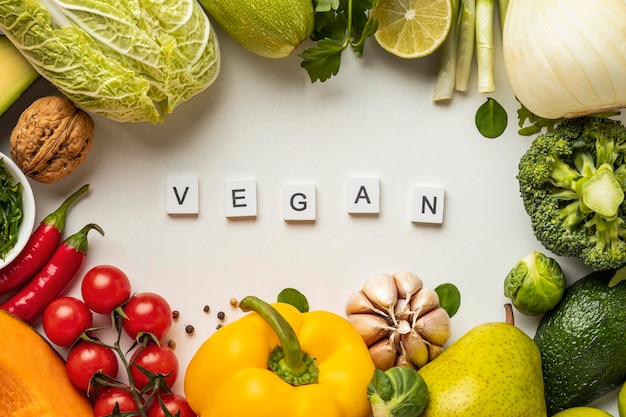
Did you try Veganuary this year? Are you looking to go vegan or adopt more plant-based eating? Dr. Gemma Newman has some helpful tips for you.
Diets can be really confusing—low fat, high fat, low carb, high carb, vegan, paleo, keto—you name it. But which ones really work, and which is the best?
Veganuary is becoming more popular every year. In 2018, 170,000 people signed up, an increase of 183% from 2017. Last year, over 250,000 people took the challenge, and the number is likely higher this year.
But is a vegan diet actually healthy? How does it compare to all the other diets touted as beneficial for our health?
There’s been a lot of confusing information about nutrition, spread by the media, food companies, and even some health professionals. However, everyone agrees on the benefits of eating plenty of vegetables and fruits, focusing on whole, unprocessed foods, and avoiding processed meats, sugary drinks, white flour, and white bread.
Some people, confused about what’s healthy, stick to old habits and say “everything in moderation.” But that’s not entirely accurate. We wouldn’t suggest smoking in moderation, so why should we think it’s okay to consume sugary drinks and processed meats in moderation, especially since processed meats are a known cause of cancer, according to the World Health Organization (WHO)?
Dr. David Katz, a founder of the American College of Lifestyle Medicine, gathered top nutrition scientists for the ‘True Health Initiative.’ They agreed that a diet rich in vegetables, fruits, beans, nuts, seeds, whole grains, and water is the foundation of good health. A paleo plate and a whole food plant-based plate actually have more in common with each other than with a typical Western diet.
Heart disease is our biggest killer, and the only diet proven to reverse artery blockages—documented in the Lifestyle Heart Trial and replicated in other studies—is a whole food plant-based diet. Until new evidence suggests otherwise, it seems sensible to recommend this diet.
Transitioning from a traditional Western diet to a plant-based one might seem tough, but it’s entirely possible. If you’re willing to give it a try, here’s how to get started.
Cookbooks like “So Vegan in 5” by Roxy Pope and Ben Pook offer over 100 simple recipes using just five ingredients each, easily found in your local supermarket. “BOSH!” by Henry Firth & Ian Theasby provides more than 80 healthy vegan recipes.
To get inspired, check out vegan hashtags on Instagram. Modify your favorite meals to start—turn a chicken curry into a chickpea curry, beef Bolognese into lentil Bolognese, or a Mexican chili into a three-bean chili. Experiment with new flavors and ideas for a fun plant-based journey.
Begin by occasionally replacing your meals with plant-based options, like breakfast or lunch, and gradually increase until you’re enjoying several plant-based meals each week. A gradual switch can yield quick benefits within two to three weeks.
The American Dietetic Association and British Dietetic Association agree that well-planned plant-based diets are healthy at all life stages and can help prevent diseases, including heart disease and cancer. They also lower the risk of chronic respiratory disorders, allergies, and recurrent childhood infections.
Unfortunately, modern soil depletion from agricultural practices has led to nutrient-deficient foods. A Western diet often lacks key nutrients like magnesium, folate, and fiber. In contrast, a whole food plant-based diet, especially the ‘nutritarian approach’ by Dr. Joel Fuhrman, focuses on nutrient-dense foods.
However, if you adopt a fully plant-based diet, you might need supplements, particularly vitamin B12, which isn’t easily obtained from plant foods. Adults need about 1.5mcg daily, but higher amounts are recommended to ensure sufficient intake. You can get B12 from fortified foods or supplements.
Even meat-eaters can become B12 deficient, especially after age 50, so it’s crucial to monitor levels and supplement as needed.
Vitamin D is also often deficient in many people. Sunlight exposure is the best source, but if that’s not sufficient, supplements of 1000iu to 2000iu per day are recommended.
Omega-3 fatty acids EPA and DHA, typically found in fish, can be obtained from algae supplements for heart health benefits without the risks of polluted seafood.
Flaxseeds are another superfood, beneficial for heart health and easily added to your meals.
Dr. Gemma Newman has been a physician for 15 years and is the Senior Partner at a family medical practice. She studied at the University of Wales College of Medicine and has experience in various medical specialties.




